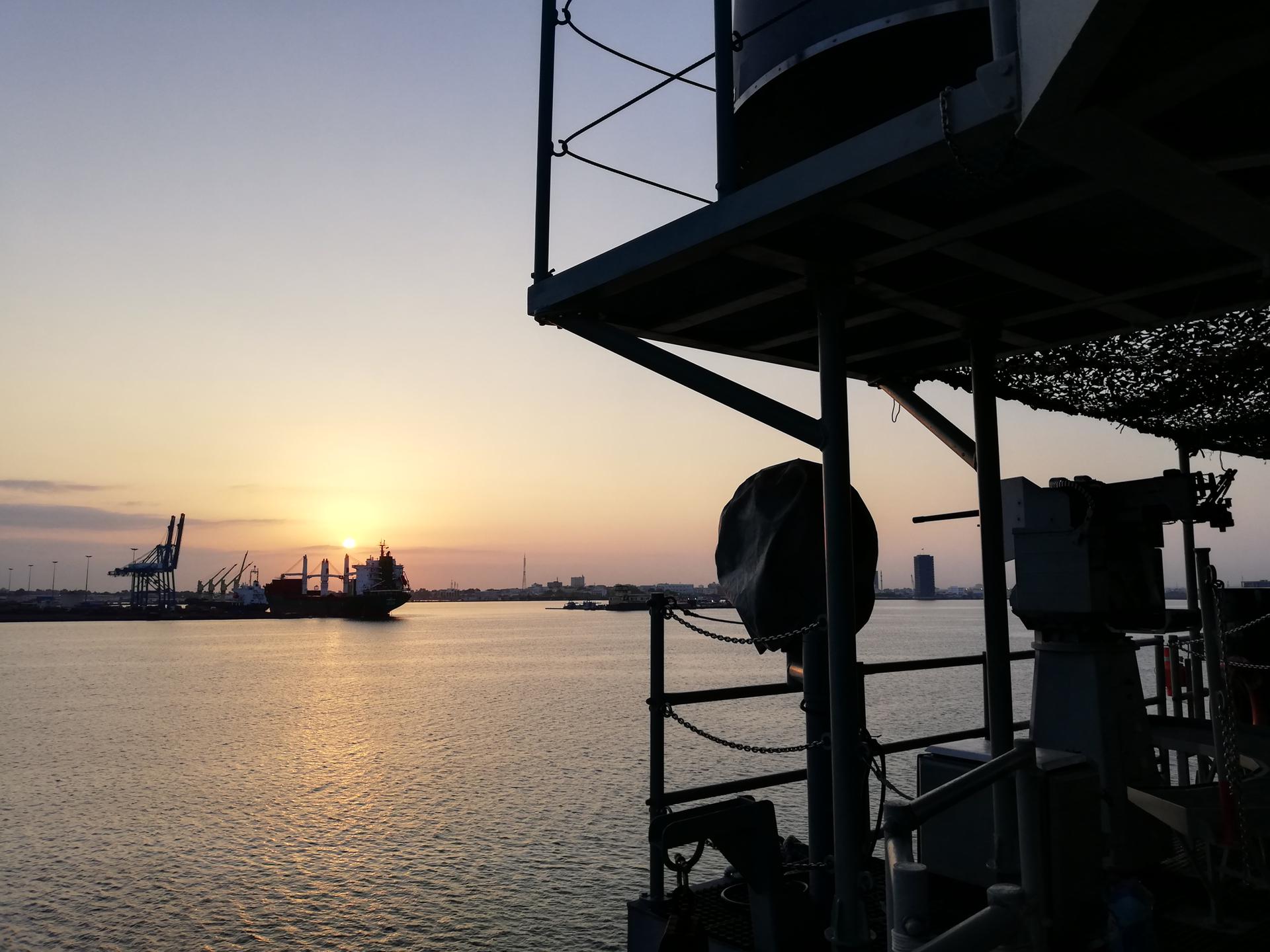“Another day rises for merchant shipping.
Over the last decades, merchant ships have been affected by situations that jeopardize their safety all over the world and therefore having a huge impact on the world economy.
One of the regions that has been most affected in the last decade is the Horn of Africa, due to the phenomenon of piracy in the Gulf of Aden and in the Somalia Basin, Indian Ocean, where about 80% of crude transported by maritime routes passes every year.
This phenomenon forced merchant shipping to adapt, implementing internal protection measures, embarking on private security teams and choosing alternative routes, all of which made the costs associated with commercial activity more expensive, harming all consumers and thus affecting the worldwide economy.
In this sequence, in 2008, the European Union launched Operation ATALANTA, led by the European Naval Force (EUNAVFOR) Somalia, with the aim of not only fighting piracy but also ensuring the protection of World Food Program merchant ships carrying humanitarian aid for the Somali people.
As a result of this initiative, starting in mid-2011, piracy acts began to drastically reduce to the point that the last unsuccessful pirate attack took place in April 2019. This profound change allowed greater freedom of navigation for merchant shipping, progressively returning to normality. However, piracy is contained, but not yet eradicated, so merchant shipping must maintain adequate protection measures to safeguard its crew and cargo.
Undoubtedly, Operation ATALANTA has been a security producer in the region that has allowed every day to be born more radiant for merchant shipping that crosses the western part of the Indian Ocean.”
(Commodore Diogo Arroteia, CTF 465)

Over the last decades, merchant ships have been affected by situations that jeopardize their safety all over the world and therefore having a huge impact on the world economy.
One of the regions that has been most affected in the last decade is the Horn of Africa, due to the phenomenon of piracy in the Gulf of Aden and in the Somalia Basin, Indian Ocean, where about 80% of crude transported by maritime routes passes every year.
This phenomenon forced merchant shipping to adapt, implementing internal protection measures, embarking on private security teams and choosing alternative routes, all of which made the costs associated with commercial activity more expensive, harming all consumers and thus affecting the worldwide economy.
In this sequence, in 2008, the European Union launched Operation ATALANTA, led by the European Naval Force (EUNAVFOR) Somalia, with the aim of not only fighting piracy but also ensuring the protection of World Food Program merchant ships carrying humanitarian aid for the Somali people.
As a result of this initiative, starting in mid-2011, piracy acts began to drastically reduce to the point that the last unsuccessful pirate attack took place in April 2019. This profound change allowed greater freedom of navigation for merchant shipping, progressively returning to normality. However, piracy is contained, but not yet eradicated, so merchant shipping must maintain adequate protection measures to safeguard its crew and cargo.
Undoubtedly, Operation ATALANTA has been a security producer in the region that has allowed every day to be born more radiant for merchant shipping that crosses the western part of the Indian Ocean.”
(Commodore Diogo Arroteia, CTF 465)

